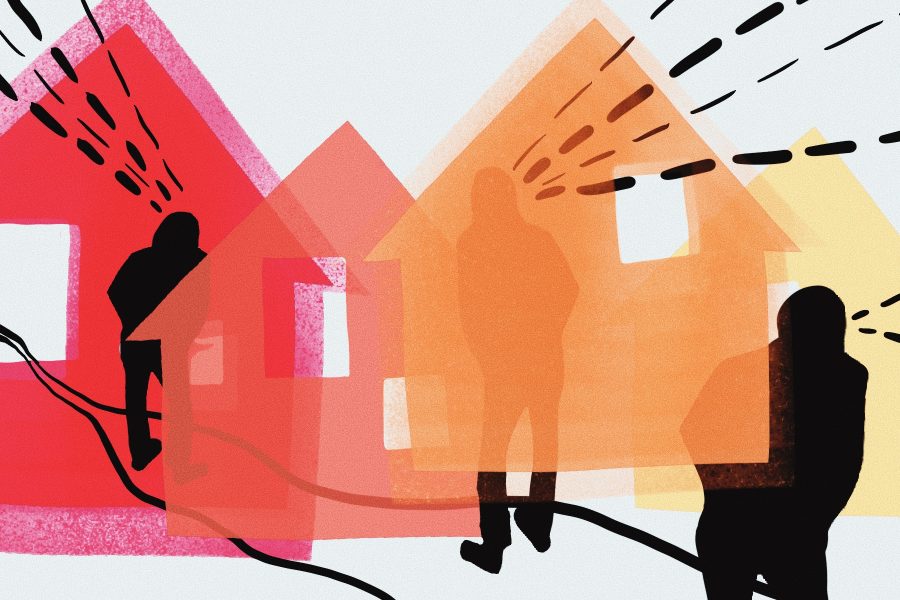Exploitation is ingrained into American higher education. College students are regularly recruited to work, unpaid, under the guise of “gaining experience.” 18-year-olds can be forced to choose between putting themselves in tens — and sometimes hundreds — of thousands of dollars in debt or going into a workforce that will not value labor despite the skills they already have. Graduate students are often expected to teach, despite being paid stipends that don’t cover living expenses.
The commodification of college students isn’t restricted to an academic setting, however. The need that students have for housing allows corporations and landlords to wield the naivety of young adults against them. Around UT, this manifests itself in the shady housing practices that have come to typify West Campus.
While landlords are often exploitative no matter where they are, there are a few aspects of West Campus leasing that make renting here particularly daunting. First, the West Campus leasing schedule puts renters at a severe disadvantage by forcing students to decide where they want to live for the next year in the early fall.
For freshmen who just arrived on campus, this creates a particularly frantic housing search, not even taking into account that these students have just moved from home. Even for students who may already be living off campus, in many instances the early leasing schedule forces tenants to choose whether or not they want to re-sign before they’ve had a chance to acclimate to their apartments. As a result, the stress of finding housing can goad people back into their leases, despite the rate increases that many apartments impose between years.
Even aside from these factors, early leasing allows complexes to raise rent throughout the leasing period as they have more time to do so — and the stage at which students become desperate for housing is often many months before complexes become desperate for renters.
The combination of this West Campus housing rush and the naivety of students, many of whom are renting for the first time and must search for apartments on their own, allows landlords to inflate rent and to write unfair provisions into leases. These are rules uncommon outside of student housing. For example, some West Campus leases allow landlords to enter apartments for inspections or tours without prior notice.
Aside from lease clauses, landlords can allow unsavory conditions to develop, knowing that students don’t have the power to challenge them.
Landlords realize that, in many cases, students won’t challenge them. There’s little need to fix broken amenities or to clear out infestations, both of which would diminish their profits. What would be the point if students don’t force them to respond?
Even outside of legality issues, every aspect of living is turned into an extra charge. Want to live above the 7th floor? That’ll cost extra. Do you have a pet? You need to pay for that, too. While these experiences may not be uniform throughout West Campus properties, there is commonality in that students are often charged for little things that should be a given when it comes to housing. But these charges aren’t so little when added.
And while some students may be able to afford the economic blows that renting often entails, many can’t.
This problem isn’t getting any better. Corporations continue to buyout affordable housing in West Campus and demolish it to build luxury properties. Austin City Council approved the construction of the Domain in Riverside, displacing many students from one of the few areas with plentiful affordable housing. Renting practices aren’t improving while the stress on the system increases. It’s time for students to band together to advocate for our rights as renters. A student tenants’ council would allow for collective action against predatory landlords, ensuring that the concerns of students be addressed.
In the meantime, the Austin Tenants Council advocates on behalf of renters throughout the city. The University also offers free legal advice to current students. In many cases of landlord misconduct, a letter from a lawyer is enough to correct the issue. Students are constantly under attack by our housing institutions, making the University less accessible than it already is. It’s time for us to fight back.
Comiskey is a Plan II and biochemistry sophomore.
















